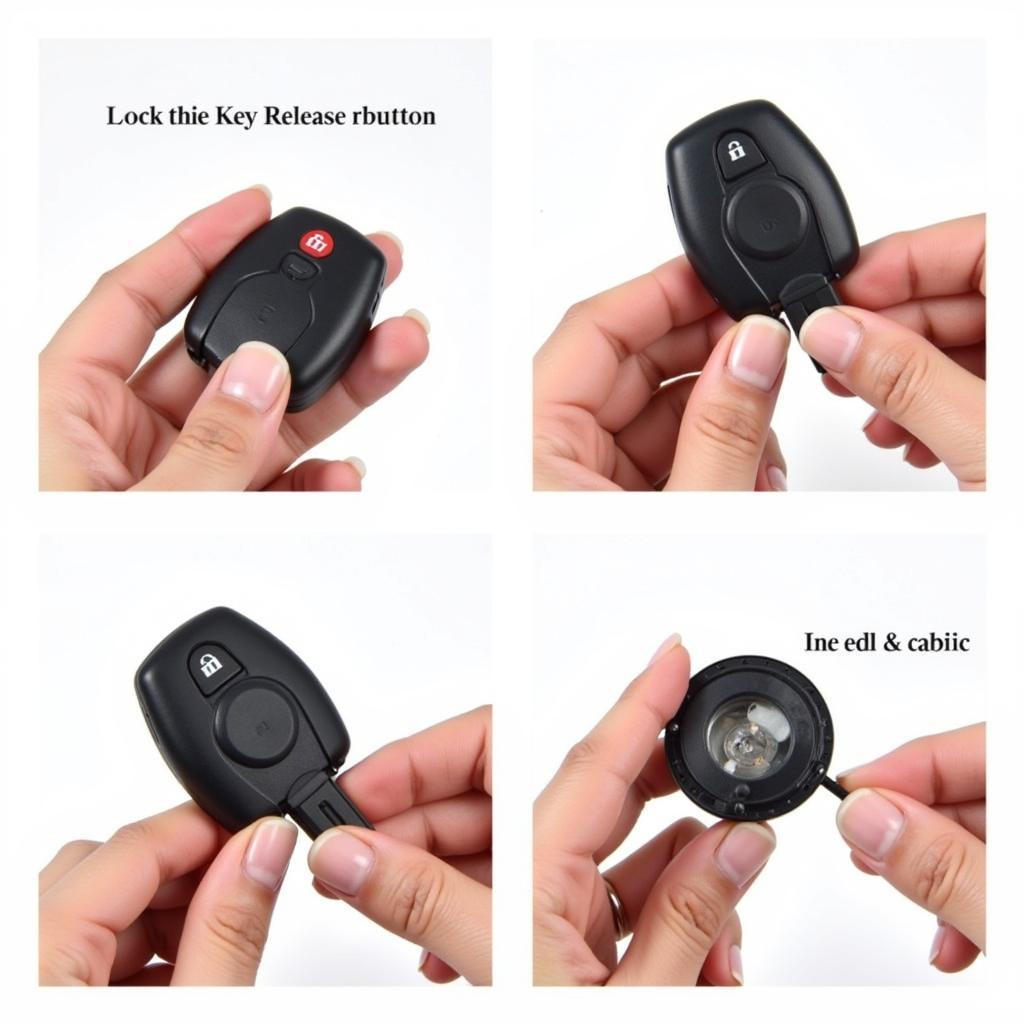A dead car battery is a frustrating experience, leaving you stranded and disrupting your plans. Understanding the reasons for dead battery issues is crucial for preventing them and ensuring your vehicle starts reliably every time. This guide delves into the common causes of a dead battery, offering practical solutions and preventative measures.
Common Reasons for a Dead Battery
Several factors can contribute to a dead battery. Some are related to the battery’s age and condition, while others stem from driver habits or vehicle malfunctions. Let’s explore the most frequent culprits.
Leaving Lights On
One of the most common reasons for dead battery issues is accidentally leaving headlights, interior lights, or other electrical components on after parking. This drains the battery, especially older ones, leaving you with a dead car the next morning.
- Solution: Always double-check that all lights are off before exiting your vehicle. Consider installing a warning chime to remind you if lights are left on.
Extreme Temperatures
Both extreme heat and cold can negatively impact battery performance. Heat can accelerate the chemical reactions within the battery, leading to faster deterioration. Cold weather thickens the battery acid, making it harder for the battery to deliver power.
- Solution: Park in a garage or shaded area during hot weather. Have your battery tested regularly, especially before winter arrives.
Old Age
Like any component, car batteries have a limited lifespan. Typically, they last between three and five years. As a battery ages, its internal components degrade, reducing its ability to hold a charge.
- Solution: Be proactive and replace your battery every three to five years, even if it seems to be working fine. Check the symptoms of a faulty car battery to be aware of potential issues.
 Corroded battery terminals
Corroded battery terminals
Corroded Terminals
Corrosion on the battery terminals can disrupt the flow of electricity, leading to starting problems or a completely dead battery. This is often caused by a buildup of battery acid residue.
- Solution: Clean the terminals with a mixture of baking soda and water. Wear gloves and eye protection. After cleaning, apply a protective coating to prevent future corrosion.
Parasitic Drain
A parasitic drain refers to a constant draw of power from the battery, even when the vehicle is off. This can be caused by faulty wiring, malfunctioning electrical components, or aftermarket accessories.
- Solution: Diagnosing a parasitic drain requires specialized equipment. Consult a qualified mechanic to identify and resolve the issue. They may need to perform a parasitic draw test.
How to Avoid a Dead Battery
Here are some preventative measures to keep your battery in good condition:
- Regular Inspections: Inspect your battery terminals for corrosion and clean them regularly.
- Limit Short Trips: Frequent short trips don’t allow the alternator enough time to fully recharge the battery.
- Turn Off Accessories: When the engine is off, avoid using power-hungry accessories like the radio or air conditioning.
- Proper Storage: If storing your vehicle for an extended period, disconnect the negative battery cable.
Expert Insights
John Miller, a seasoned automotive electrician, emphasizes the importance of regular battery maintenance: “Many drivers overlook simple battery checks until it’s too late. Regular inspections and cleaning can significantly extend the life of your battery.”
Sarah Chen, a leading automotive engineer, adds, “Modern vehicles have complex electrical systems. A seemingly minor issue, like a faulty door switch, can lead to a significant parasitic drain and a dead battery. Don’t underestimate the importance of professional diagnostics.”
Conclusion
Understanding the reasons for dead battery problems is the first step towards preventing them. By following the tips and preventative measures outlined in this guide, you can ensure your car starts reliably and avoid the inconvenience of a dead battery. Remember to check your battery regularly, particularly if it’s nearing the end of its lifespan. You might also find it helpful to learn about issues like a positive battery terminal loose or problems with your Tesla 12v battery problem. For those driving a Jeep Compass, information on the 2019 jeep compass battery positive negative or troubleshooting a jeep compass key fob not detected can be invaluable. Staying informed about your vehicle’s specific needs and potential issues is key to its long-term health.
FAQ
- How long does a car battery last? Typically, car batteries last between three and five years.
- Can a dead battery be recharged? Yes, in most cases, a dead battery can be recharged using a battery charger or jumper cables.
- What are the signs of a dying battery? Signs include slow engine cranking, dim headlights, and clicking sounds when turning the key.
- How can I test my car battery? You can test your battery using a multimeter to measure its voltage.
- Is it safe to jump-start a car battery? Yes, it’s generally safe if done correctly. Follow the instructions in your owner’s manual.
- What causes a car battery to drain overnight? A parasitic drain, leaving lights on, or an old battery are common causes.
- How can I prevent my car battery from dying? Regular maintenance, limiting short trips, and turning off accessories when the engine is off can help.

